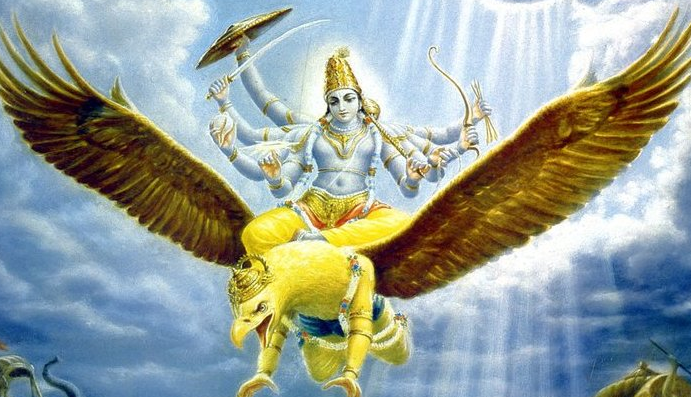 “It is Kaikeyi to blame for such misfortune. No one but Kaikeyi. She is responsible for Shri Ram’s fourteen years of exile,” said Nishaad to Lakshman. Lakshman’s response to the Nishaad was that no one or nothing, except one’s karma is the cause of one’s circumstances. Whether one experiences happiness, sorrow, wealth or indigence, fortune or misfortune, the world revolves around karma. This law of karma is a universal one, a cosmological one that cuts across all barriers that create distinctions between man and his world.
“It is Kaikeyi to blame for such misfortune. No one but Kaikeyi. She is responsible for Shri Ram’s fourteen years of exile,” said Nishaad to Lakshman. Lakshman’s response to the Nishaad was that no one or nothing, except one’s karma is the cause of one’s circumstances. Whether one experiences happiness, sorrow, wealth or indigence, fortune or misfortune, the world revolves around karma. This law of karma is a universal one, a cosmological one that cuts across all barriers that create distinctions between man and his world.
What then is karma?
Karma refers to the totality of our actions and the concomitant reactions in this and previous lives, all of which determine our future. It names the universal principle of cause and effect, of action and reaction. Every living being is bound by karma. Every thought, word or physical action constitutes one’s karma.
What causes karma?
In Chapter 2 of Bhagavad Gita, Shri Krishna says, “Your right is to work only, but not to the fruit thereof. Be not instrumental in making your actions bear fruit, nor let your attachment be to inaction.” This verse indicates that act we must, since actions by themselves do not cause bondage. However, the attitude with which karmas or actions are performed determine the reaction that is borne out. Actions performed without any hope of rewards or fruits are not binding and as such, bring no reaction. Reference to the concept of karma is found copiously in Hindu scriptures in which desire is identified as the factor that binds man. It is the root cause of our suffering and the above verse cautions us against action that is motivated by desire.
What types of karma are there?
Hinduism recognises three types of karma operating in our lives simultaneously. They are as follows:
a. Sanchit: the sum total of accumulated karma of the past which has not reached fruition and which needs to be exhausted at some stage of one’s existence.
b. Praarabdh: that part of sanchit karma that is presently bearing fruit. This influences the course of one’s present life.
c. Aagaami: the karma that arises out of current life activities whose consequences will be experienced in the future.
How then, can one be freed from the bondage of karma?
One becomes free from the fruits of action if one moves through his world acting like Garud, the king of the birds and vehicle of Bhagavan Vishnu. Like this eagle one’s actions should be performed on the wings of vivek (discriminative power) and vairaagya(dispassion) and propelled by the tail of bhakti (devotion). Possessing these qualities one’s actions are imbued with the spirit of sacrifice, renunciation and detachment as they go hand in hand with self-surrender, faith and selflessness. Actions done in this manner help to remove the three types of mal or impurities, namely, Aanava – borne out of egoism, Kaarmiya – binding action and Maayiya – imaginary illusion. When one recognises that one is the creator of his own destiny one becomes more aware of his actions and his attitude in performing them. In this way he takes full responsibility for his life and plots the way into his future through his present actions, guided by wisdom and performed as an offering to the Divine.


